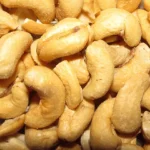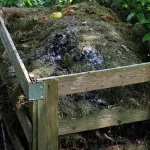In organic gardening and sustainable farming, vermicompost and worm castings are two terms that often come up. Both are products of the composting process involving worms, but they are not the same. The differences between vermicompost and worm castings are crucial for gardeners and farmers looking to naturally enhance their soil health and plant growth.
What is Vermicompost?
Vermicompost is a nutrient-rich, organic soil amendment produced through vermiculture, which involves the decomposition of organic matter by various species of worms, such as red wigglers, white worms, and earthworms.
The process transforms vegetable scraps, food waste, bedding materials, and other organic matter into a mixture that includes worm castings, partially decomposed materials, and beneficial microorganisms.
The Process of Vermicomposting
The process starts with worms consuming organic material. As the worms digest the food, they break it down with the help of their gut bacteria, turning it into a more decomposed form.
The worms' digestive process enhances the nutrient content of the compost, making it a potent soil amendment. The end product, vermicompost, appears as a dark, rich, soil-like material interspersed with bits of organic matter.
What are Worm Castings?
Worm castings, or vermicast, are worms' pure, nutrient-rich excrement. When worms eat organic material, they excrete it as castings full of beneficial nutrients and microorganisms. These castings are a highly concentrated form of natural fertilizer, often called “black gold” by gardeners.
The Composition and Benefits of Worm Castings
Worm castings are purely the digested and excreted organic matter from the worms, devoid of any undigested material. This makes them more uniform and concentrated in essential nutrients like nitrogen, phosphorus, and potassium. Worm castings also contain beneficial microbes that help suppress plant diseases and improve soil structure and aeration.
Key Differences Between Vermicompost and Worm Castings
- Purity: Vermicompost contains a mix of worm castings, partially decomposed organic matter, and other organic materials. In contrast, worm castings are purely the excreted matter from the worms, making them more concentrated in nutrients.
- Nutrient Concentration: Due to their purity, Worm castings have a higher concentration of nutrients than vermicompost. This makes them a potent fertilizer when used in smaller quantities.
- Appearance: Vermicompost appears as a mixture of dark, rich soil-like material with bits of organic material still visible, whereas worm castings are more uniform, fine, granular, and dark in color, resembling coffee grounds.
- Use in Gardening: Vermicompost can be used directly as a soil amendment, mulch, or in potting mixes, improving soil health and plant growth over time. With their higher nutrient content, Worm castings are often used as a top dressing in seed starting mixes or with other soil amendments to boost plants' nutrients.
How to Use Vermicompost and Worm Castings in Your Garden
Both vermicompost and worm castings can significantly benefit your garden, but due to their distinct properties, they are best used in different ways.
Using Vermicompost
- Soil Amendment: Mix vermicompost into garden beds or potting soil to improve soil structure, water retention, and nutrient availability.
- Mulch: Apply a layer of vermicompost around the base of plants to help retain moisture, suppress weeds, and slowly release nutrients.
- Compost Tea: Brew vermicompost tea by steeping vermicompost in water to create a nutrient-rich liquid fertilizer that can be applied to plants as a foliar spray or soil drench.
Using Worm Castings
- Top Dressing: Sprinkle worm castings around the base of plants or mix into the top layer of soil to provide an immediate nutrient boost.
- Seed Starting Mix: Incorporate worm castings into seed starting mixes to enhance germination rates and seedling vigor.
- Compost Tea: Like vermicompost, worm castings can also make a potent compost tea for foliar and soil applications.
Both vermicompost and worm castings are invaluable tools for organic gardening and sustainable agriculture. While vermicompost provides a balanced mix of nutrients and organic matter that improves soil health over time, worm castings offer a concentrated dose of nutrients and beneficial microbes for immediate plant growth enhancement.
Knowing their differences and appropriate uses will help you as a gardener maximize the benefits of these natural soil amendments to achieve healthier, more productive plants.

Lifelong bacon junkie. Lifelong internet fanatic. Hipster-friendly travel aficionado. Twitter lover. Avid food buff. Incurable travel trailblazer.













